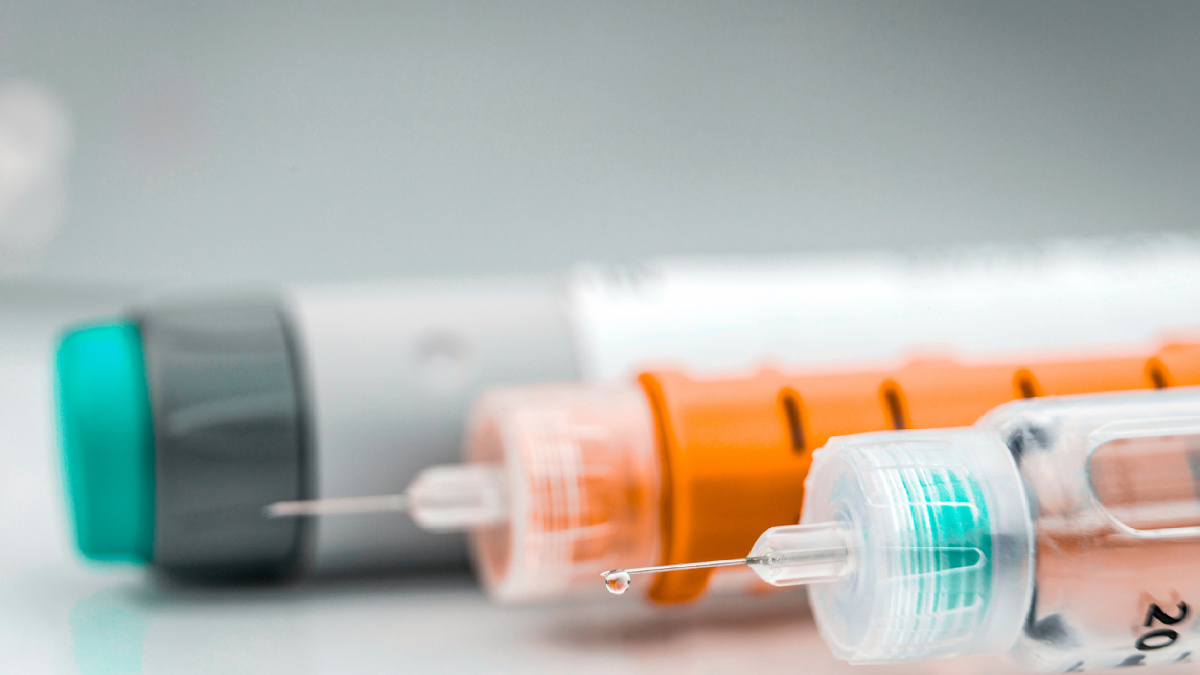Insulin is a hormone produced by the pancreas that regulates the amount of glucose in the bloodstream. When we eat carbohydrates, they are broken down into glucose, which enters the bloodstream. In response, the pancreas releases insulin, which signals cells throughout the body to absorb glucose from the bloodstream and use it for energy or store it for later use. Insulin also signals the liver to store excess glucose as glycogen.
In people with insulin resistance, the body becomes less responsive to insulin, which can lead to high blood sugar levels and a host of health problems, including type 2 diabetes. Understanding how insulin works in the body is key to managing insulin resistance and maintaining good health.
Understanding Insulin Resistance And Its Causes
There are several factors that can contribute to insulin resistance, including genetic factors, lifestyle factors such as poor diet and lack of exercise, and certain medical conditions such as polycystic ovary syndrome (PCOS). Understanding the causes of insulin resistance is important because it can help individuals take steps to prevent or manage the condition. This may include making dietary and lifestyle changes, taking medication, or working with a healthcare provider to develop a personalized treatment plan.
Symptoms And Diagnosis Of Insulin Resistance
Some common symptoms of insulin resistance include fatigue, weight gain, and increased hunger. Other symptoms may include high blood pressure, high cholesterol levels, and difficulty losing weight. Diagnosis of insulin resistance typically involves a blood test to measure fasting glucose and insulin levels. A doctor may also perform a glucose tolerance test or a hemoglobin A1C test to determine the severity of the condition. Treatment for insulin resistance often involves lifestyle changes such as diet and exercise, as well as medication to help regulate blood sugar levels. It is important to seek medical attention if you suspect you may have insulin resistance to prevent the development of type 2 diabetes and other related health complications.
The Link Between Insulin Resistance And Type 2 Diabetes
Insulin resistance is a condition where the body’s cells become less responsive to insulin, a hormone produced by the pancreas that regulates blood sugar levels. This condition can lead to the development of type 2 diabetes, a chronic disease characterized by high blood sugar levels. In people with insulin resistance, the pancreas tries to compensate by producing more insulin, but over time, the cells become less and less responsive, leading to high blood sugar levels.
Type 2 diabetes is a serious health condition that can lead to complications such as heart disease, kidney damage, and blindness. It is important to manage insulin resistance early on to prevent the development of type 2 diabetes. Lifestyle changes such as maintaining a healthy weight, exercising regularly, and eating a balanced diet can help improve insulin sensitivity and prevent the onset of diabetes. Additionally, medications such as metformin can be prescribed to help manage insulin resistance and prevent the development of type 2 diabetes.
Lifestyle Changes To Improve Insulin Sensitivity
There are several lifestyle changes that can help improve insulin sensitivity. One of the most effective ways to improve insulin sensitivity is by engaging in regular exercise. Exercise helps to increase muscle mass, which in turn helps to increase insulin sensitivity. Additionally, regular exercise can help to reduce body fat, which is a major contributor to insulin resistance.
Another way to improve insulin sensitivity is by making dietary changes. Eating a diet that is high in fiber, low in carbohydrates, and low in saturated fats can help to improve insulin sensitivity. Additionally, consuming foods that are rich in antioxidants, such as fruits and vegetables, can help to reduce inflammation in the body and improve insulin sensitivity. Making these lifestyle changes can help to improve overall health and reduce the risk of developing type 2 diabetes.
Medications And Supplements For Insulin Resistance
Medications and supplements can be effective in managing insulin resistance. Metformin is a commonly prescribed medication that helps decrease glucose production in the liver and improve insulin sensitivity. It is also associated with weight loss, making it a popular choice for those with insulin resistance and obesity. Other medications, such as thiazolidinediones and sulfonylureas, work by increasing insulin sensitivity and stimulating insulin production. However, these medications may have side effects and should only be taken under the guidance of a healthcare professional.
Supplements such as chromium, magnesium, and alpha-lipoic acid have also been shown to improve insulin sensitivity. Chromium helps regulate blood sugar levels by enhancing the action of insulin, while magnesium plays a role in insulin secretion and glucose metabolism. Alpha-lipoic acid is an antioxidant that may improve insulin sensitivity and reduce inflammation. However, it is important to consult with a healthcare professional before taking any supplements, as they may interact with other medications or have negative side effects.
The Role Of Diet In Managing Insulin Resistance
One way to manage insulin resistance is through diet. A diet that is low in refined carbohydrates, sugar, and saturated fat, and high in fiber, lean protein, and healthy fats can help improve insulin sensitivity and regulate blood sugar levels. Additionally, incorporating regular physical activity and maintaining a healthy weight can further improve insulin resistance. By making lifestyle changes, individuals with insulin resistance can improve their overall health and reduce their risk of developing chronic diseases.
Taking Control Of Insulin Resistance For Better Health
Insulin resistance is a major health concern that can lead to a variety of chronic diseases. However, there are steps that can be taken to control insulin resistance and improve overall health. These include maintaining a healthy diet, exercising regularly, getting quality sleep, reducing stress, and taking medications as prescribed. By taking control of insulin resistance, individuals can reduce their risk of developing chronic diseases and improve their overall quality of life. It is important to work with healthcare professionals to create a personalized plan for managing insulin resistance and to stay committed to making healthy lifestyle choices.




